Life Sciences Bolster Boston’s Office Market
Read how the city is stacking up against other gateway metros.
Boston’s expansive life sciences segment has continued to bolster the metro’s development pipeline through the first 10 months of 2023, maintaining its lead in terms of construction. The city is however adapting to macro-economic conditions, as construction starts registered a significant drop to less than half of the figure recorded in the previous year, recent CommercialEdge data shows.
In terms of transactions, Boston’s office market performed on par with other gateway metros. While its average price per square foot registered a noteworthy year-over-year drop, the total investment volume still ranked it second among its peers, just behind Manhattan.
Boston continues to lead in development
As of October, there were more than 13.7 million square feet of office space under construction in Boston, accounting for 5.3 percent of total stock, considerably higher than the 1.5 percent national figure. The metro’s pipeline was the largest in the nation, surpassing Miami (4.6 percent) and San Francisco (4.1 percent) and being far above other gateway markets such as Manhattan (1.7 percent), Los Angeles (1.1 percent) and Chicago (0.5 percent). Of the 49 properties comprising Boston’s development volume, 36 were life sciences projects.
Lendlease and Ivanhoé Cambridge topped out a $545 million project dubbed FORUM, spanning 350,000 square feet and subject to a $315 million construction loan from Bank of China. The largest property currently under construction is the 960,000-squre-foot second phase of the Fenway Center which broke ground in June this year.
New office starts did however slowdown with eight properties breaking ground in the first 10 months of 2023 for a total of some 2.8 million square feet. Comparatively, during the same period in 2022, construction had started on 23 properties or 6.2 million square feet of office space.
Year-to-date through October, 15 properties were delivered in Boston, adding more than 5 million square feet of office space online, or 1.8 percent of existing stock. One of the largest properties to come online this year was One Congress, a 1-million-square-foot tower developed by Carr Properties, in partnership with National Real Estate Advisors and The HYM Investment Group. The 43-story building is fully preleased with State Street Bank occupying 510,000 square feet and InterSystems having committed to 420,000 square feet.
PSF prices decrease in Boston’s office market
Year-to-date through October Boston ranked as one of the top markets for office transactions nationally. During the first 10 months of 2023, roughly 5 million square feet of office space traded in Boston for a total of $1.46 billion, only surpassed by Manhattan’s $1.71 billion. The total investment volume registered in the metro was on par with Washington, D.C., ($1.4 billion) and far above Miami ($883.6 million), Chicago ($803 million) and San Francisco ($581 million.)
The average per square foot price in the metro was $312.6, a significant drop from 2022’s figure of $491. It ranked below Manhattan ($579.6), Miami ($350.6) and San Francisco ($340.6), but considerably surpassing Los Angeles ($282), Washington, D.C., ($215.6) and Chicago ($107.3).
The largest deal recorded this year was CS Capital Management’s joint acquisition of Centerpoint – 41 Seyon St. and Centerpoint – 43 Foundry Ave., two office buildings totaling 444,120 square feet for a combined $444 million. Another noteworthy transaction was Azora Exan Capital’s $41 million purchase of 7 Post Office Square, a 62,246-square-foot building in downtown Boston.
According to a recent CommercialEdge office market bulletin, Boston ranks fourth among U.S. markets by sheer volume of office loans. The market had $42.9 billion in active loans as of October, only trailing Manhattan ($174.5 billion), Los Angeles ($60 billion) and Washington, D.C. ($51.9 billion).
Boston still offers coworking opportunities
As of October, there were some 4.7 million square feet of coworking space in the Boston office market, accounting for 1.8 percent of the total stock. Washington, D.C., was the only gateway market with flexible space representing a smaller portion of the market at 1.6 percent, while most others had slightly larger shares such as San Francisco (1.9 percent), Chicago (2 percent) and Los Angeles (2.2 percent). Miami continued to lead the U.S. in this metric at 3.5 percent of stock, followed by Manhattan’s 2.6 percent.
Regus operates one of the largest portfolios in the metro with 32 locations for a total of more than 586,000 square feet of flexible space. WeWork also commanded a sizable footprint with 10 properties totaling roughly 896,000 square feet. Industrious is another key player in the Boston coworking market with its hands on more than 195,000 square feet.
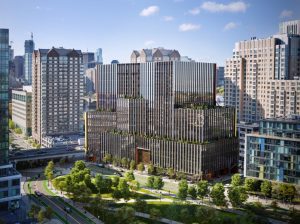
441 Morgan Ave. is DivcoWest’s fifth life science building within Cambridge Crossing. Image courtesy of DivcoWest
One of the largest leasing deals in Boston over the past year has been Deloitte committing to 138,000 square feet at the Millennium Partners owned Winthrop Tower in the metro’s financial district. The tenant plans to move into the 62-story tower by the fall of 2024, relocating all its 3,100 employees. DivcoWest also landed a 62,000-square-foot lease from Astellas Pharma Inc at 441 Morgan Ave., a 375,000-square-foot life sciences property currently under construction. The tenant will occupy two full floors and has scheduled its move in for next year.

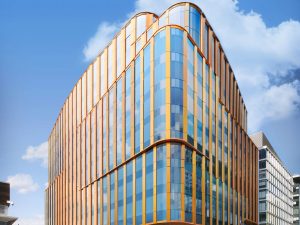
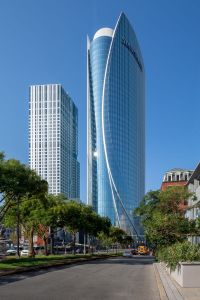
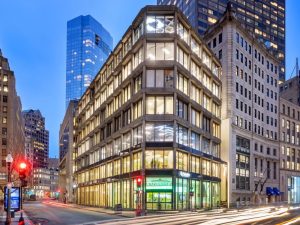
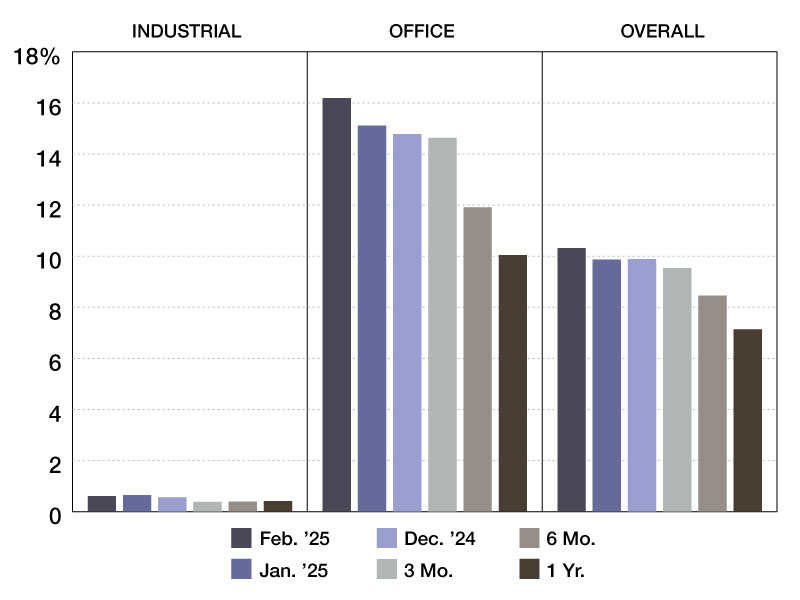
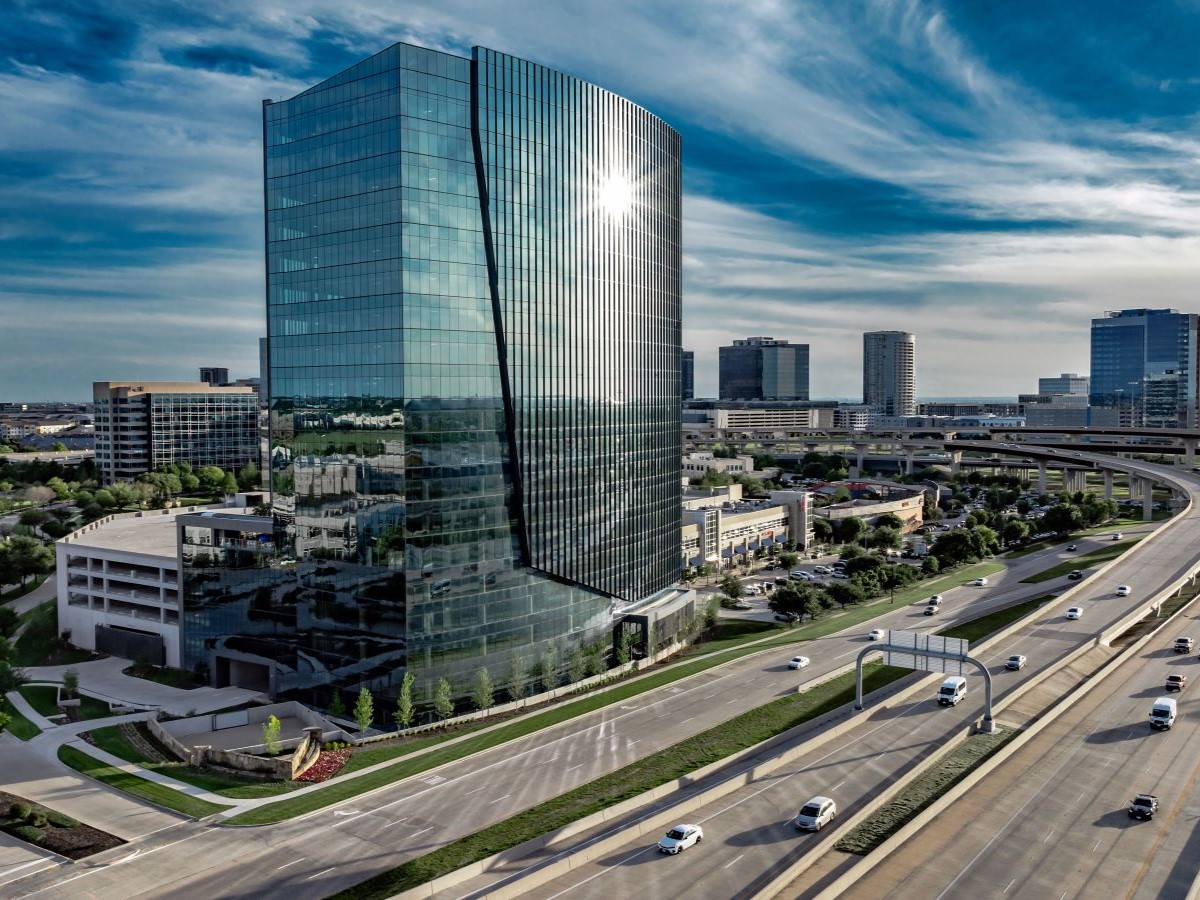

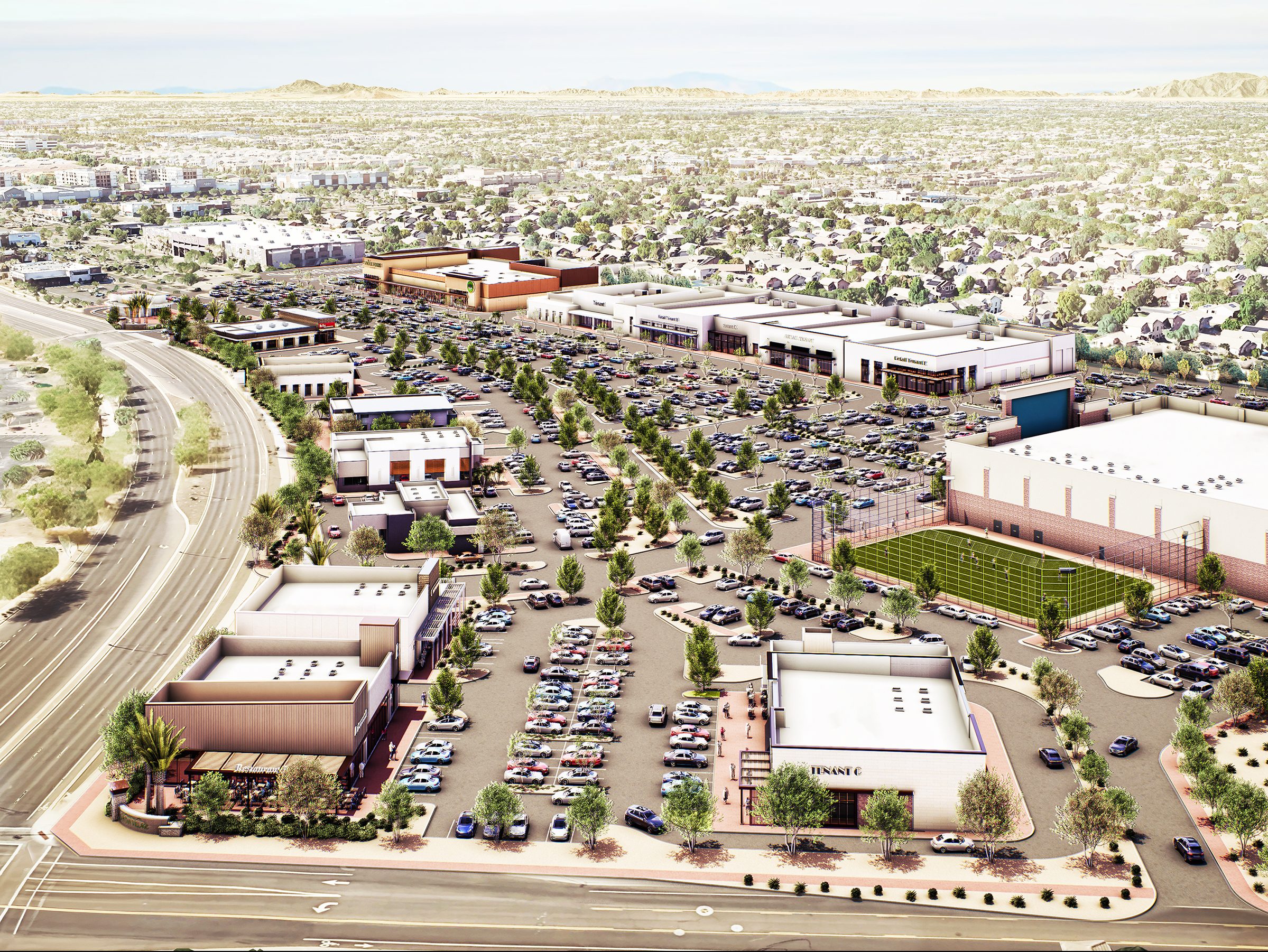

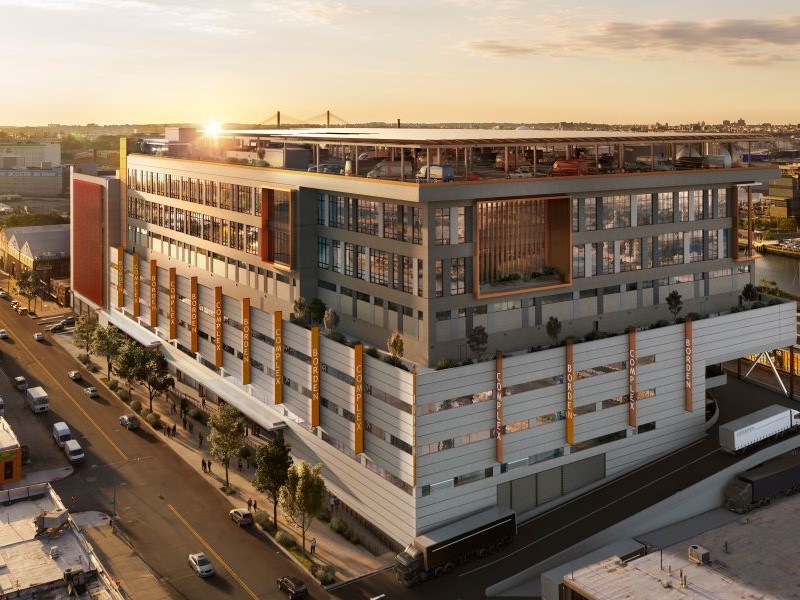
You must be logged in to post a comment.